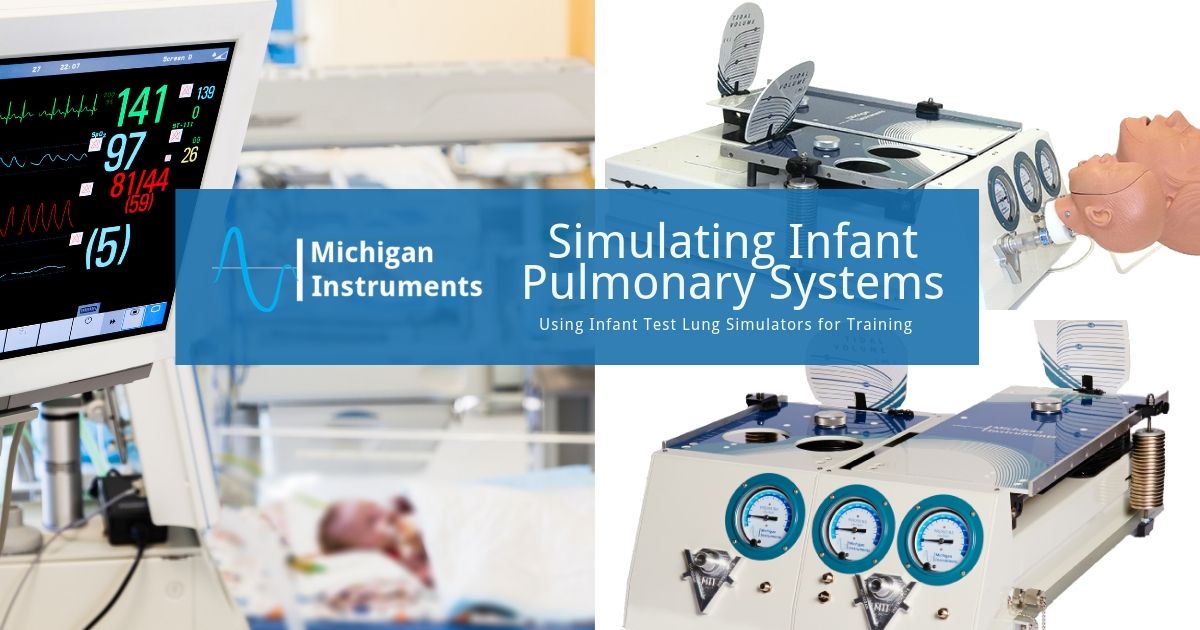Simulating Infant Pulmonary Systems
When an infant leaves the uterus and makes its entrance into the world, the function of their body system changes significantly. Now, their lungs must breathe air, their digestive system must process food, and their kidneys must balance fluids and eliminate waste.
Common Respiratory Conditions in Infants
Sometimes, those newly deployed systems don’t work as they should. That includes the respiratory system. In most cases those early issues are due to prematurity or congenital defects that obstruct the development of their lungs or airways. Respiratory distress syndrome, for example, is a breathing disorder that results from premature lungs. Infants with this condition show symptoms that include heavy breathing, grunting, flaring of the nostrils, and chest retractions. Many of those infants require extra oxygen and breathing assistance.
Another respiratory condition among infants is chronic lung disease that can result in long-term breathing and lung challenges. The most common type of chronic lung disease in infants is known as bronchopulmonary dysplasia (BPD). While most infants recover from BPD when treated properly, some may have long-term breathing difficulties.
Infant Test Lungs for Training
Treating infants with respiratory conditions requires a great deal of training and skill. That’s where Michigan Instruments comes in. We offer infant test lungs that are ideal for simulating the mechanics of infant pulmonary systems.
The infant TTL™ and PneuView™ Systems can quickly simulate the realistic conditions of infants pulmonary systems and prepare medical professionals to help deal with a variety of complications. In addition, our infant lung simulators make it easy to evaluate the performance of a variety of techniques that can support infants in their breathing and lung functions. Some of these techniques may include oxygen therapy, CPAP, pressure support, or mechanical ventilation, which are used to ease or fully support the breathing needs of these smallest patients.
While training is important when treating any patient with a respiratory condition, it’s particularly vital with infants who are delicate in nature. By using our infant test lung simulators, medical professionals can receive the additional training and simulation experience they need to feel confident when they are presented with actual infant patients requiring respiratory support.
Our infant lung simulators can also benefit researchers by helping them investigate and test new techniques, treatments, and devices that can improve the quality of life for infants or even save their lives.
Contact Us Today
For more information on our infant test lung simulators and how they can effectively simulate infant pulmonary systems, contact us today.




